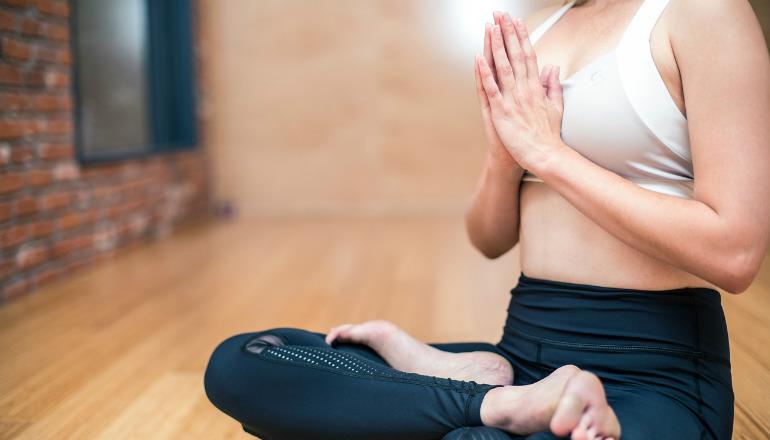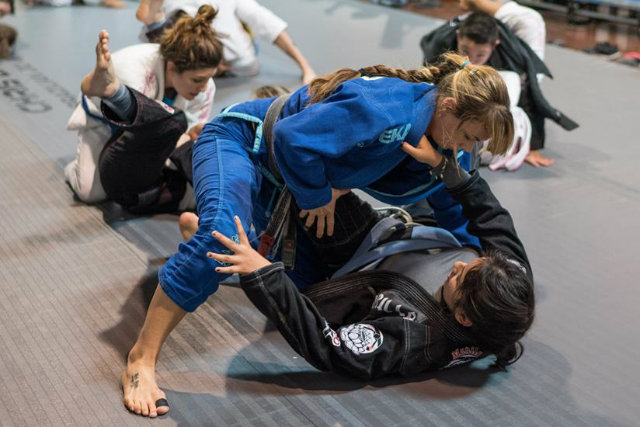 Reading Time: 7 minutes
Reading Time: 7 minutesMost things we read in the fitness world are about motivation for sticking to the gym and eating healthy. But there are a lot of you who are already motivated, disciplined, and determined to achieve your health and fitness goals.
Maybe some of you are competitive athletes or serious part-time fitness enthusiasts. And, unlike the targets of all those motivation articles, maybe some of you are working out so much that you are feeling tired and drained.
For many who set New Year’s resolutions a few months ago, this time of the year brings burnout. And if exercise burnout is not managed correctly with periodized rests and the right nourishment, a few months of that hard-core dedication to an intense workout schedule can backfire in the form of overtraining.
Overtrained athletes are far more susceptible to injury, illness, fatigue, and mood swings — all of which pretty much defeats the “health journey” that you are on. Here are some signs you may be overtraining:
- Fatigue, lethargy, and tiredness
- Constant muscle soreness
- Repetitive injuries
- Trouble sleeping
- Excessive sweating and overheating
- Accelerated heart rate on waking
- Lack of desire to work out or train
- Suppressed appetite
- Compromised immune system
Why We Train and Why We Rest
The concept of successful training for performance athletes and bodybuilders is based on the foundation of increasing stress on the body to trigger an adaptive response. This results in increased strength, speed, muscular size, or neuromuscular control due to the adaptations. However, this can only occur if there is recovery time.
After a hard training session or workout, fatigue and an initial decrease in performance occurs before the body becomes stronger or more efficient. For those who are training too much and not letting the body rest, the adaptations do not occur.

For years, I was overtrained, but I learned rest is crucial for progress and health.
Additionally, if weight loss is your goal, then you may be compelled to spend more time on the treadmill or do more circuit classes to burn those calories. But regardless of how much body fat you may have to lose, there comes a point where the body has just had enough. For women, a sign of overtraining and extreme stress on the body from lack of nourishment is the cessation of menstruation. Constant fatigue, chronically sore muscles, and repetitive injuries are other clear signs you need take a break.
If you want to achieve exercise success — regardless of whether the goal is to gain size, lose weight, or increase performance — the various systems in your body need time to recuperate. Let’s look in more detail at what happens when we overtrain.
Fatigue of the Structural and Muscular Systems
Obvious systems of the body impacted by overtraining are the structural system (our bones, ligaments, and tendons) and the muscular system. An overload of training can lead to stress on these components, which can then lead to prolonged muscle soreness, reduced performance, and an increased risk for injury.
Some of the most common injuries from overuse are:
- Tendinitis (most commonly in the elbow)
- Shin splints
- Lower back pain
- Shoulder injuries (most commonly to do with the rotator cuff)
Without recovery our muscles, tendons, ligaments are not able to adapt, and instead break down.

Fatigue of the Nervous System
The nervous system, which sends the signals to our muscles when we train, can become fatigued also. A fatigued nervous system usually comes about from a few key factors compounded together.
High exercise volume and heavy workloads that require a lot of neural activation will fatigue the nervous system much faster than slow walks or simple isolation exercises such as a seated bicep curl. Plyometric training and dynamic sports such a wrestling whereby large and multiple muscles group (such as the quads, glutes, and core) are being recruited are perfect examples of modalities that can be easily overtrained.
Other key factors that can multiply the stress of these workouts are lack of “off” days in the training schedule, lack of sleep, and a hectic lifestyle due to work, parenthood, and/or all the other stresses of life. All this together is a surefire recipe for a fatigued nervous system.
A fatigued nervous system contributes:
- Lack of motivation
- Moodiness
- Difficulty sleeping even though you are tired
- Excessive sweating (especially at night)
- Accelerated heart rate upon waking
- Suppressed appetite
Without recovery, our nervous system fails to govern our body effectively and efficiently, and the health habits that support an increase in strength, speed, skill, and performance (i.e. sleep, nutrition, etc.) are inhibited from thriving.
The Importance of Rest
Unfortunately, the only thing you can do to recover from burnout is to rest. If this is frustrating to you, take comfort in the fact that you are not alone. A lot of people don’t realize rest is actually a very important part of a training program. Believe me, I came to know this firsthand.
As a competitive athlete on the world level, I pushed for years to train more, train longer, and train with more intensity. Eventually my body shut down. I endured a series of bad injuries (a couple that took me to the emergency room) as well as constant colds. My body was forcing me to rest by getting injured and sick all the time.
Back then, I (and some of my coaches) apparently thought the only way to get better was to do more. But now, as an experienced athlete and as a trainer and coach myself, I have learned “more is better” is not the rule for long-term success.
How to Get Active Rest
All that said, I am not advocating for you to become couch potatoes. I also know that for some of you the thought of rest might be torture and it may trigger feelings of guilt because you not are working out.
Although I do recommend one complete rest day per week, I also recommend active rest. Active rest involves moving your body in a non-stressful way. Slow walks, gentle stretching, or certain types of yoga are all great examples of active rest. (Think yin yoga, not power yoga.)
For all my clients and students, I create weekly and monthly workout schedules that are periodized to include lower intensities, higher intensities, and rest days. I design these exercise programs specifically to avoid burnout (in addition to achieving the client’s goal).
Simple examples of how to do this in your weekly schedule might look like:
- 1 intense hill sprint session per week and 1 walk
- 2 heavy sparring sessions in your martial art and 2 lighter sessions focused on technique and mobility
- 2 heavy lifting days using large muscle groups and compound movements (e.g. deadlifts and box jumps) paired with 2 lifting days of smaller muscle groups and isolation work (e.g. triceps pushdowns and lateral raises)
Try to balance out your sessions between “hard” and “recovery,” rather than have all the sessions be all-out sprints, full-contact sparring, or super heavy lifting. By periodizing your workouts and interspersing lighter sessions into your training, you can still get the results you want on a long-term basis without overloading your body.
You Can Achieve Without Overtraining
For all you athletes and fitness enthusiasts out there, hats off for sticking so diligently to your goals. But if you are experiencing signs and symptoms of overtraining then taking your foot off the gas pedal may be the way to go.
If all your sessions are intense and physically demanding, it’s time to arrange some lighter sessions in your weekly schedule. Enjoy a yoga class or a stroll outside instead of one of your standard sessions — and schedule at least one complete rest day, maybe more depending on the severity of your overtraining symptoms.
Additionally, try your best to reduce outside stressors. If you are a busy working parent, for example, try to delegate. Add some TLC in your life such as a massage or a luxurious bubble bath with candles and essential oils. Stay hydrated and nourish your body with plenty of whole, nutritious foods.
If you want to keep smashing your goals on a long-term basis, then it is important you are feeling fresh and energized with the fire to hit the gym week in and week out. And, ironically, you do this by dialing things down, not up.









